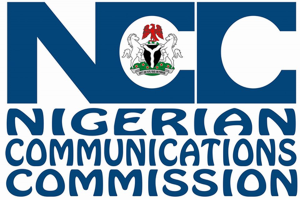…How He Transformed the Nigerian Tax System as FIRS Executive Chairman
Muhammad Nami has, without doubt, paid his dues as a core professional taxman. He distinguished himself in the over 30 years he spent practising as an accountant, management consultant and tax administrator. The icing on the cake was the last three and half years he served as the Executive Chairman of the Federal Inland Revenue Service (FIRS). In those few years, he took Nigeria’s apex tax agency to levels and heights not seen before in its history and, in the process, set and shattered many revenue collection records.


Nami’s journey to the pinnacle of tax administration and collection profession began way back in 1968 when he was born in Nami village, Agaie Local Government Area of Niger State. He was educated at Jipo LEA Primary School and Government Secondary School, Suleja, before obtaining a bachelor’s degree in sociology from Bayero University Kano in 1991 and a master of Business administration (MBA) degree from Ahmadu Bello University, Zaria in 2014. He is a fellow of the Chartered Institute of Taxation of Nigeria, the Institute of Debt Recovery Practitioners of Nigeria and an Associate Member of the Nigerian Institute of Management (Chartered) and Association of National Accountants of Nigeria. He is also a Fellow of the Institute of Chartered Stockbrokers of Nigeria.
Nami started his career with PKF International in 1993 and rose to the position of senior consultant in charge of tax management and advisory services. He joined KEL Group of Companies as General Manager from 2004 to 2006; and later with the Mainstream Energy Solutions Ltd as a Statutory Board Audit Committee Member. In 2018, he founded Manam Professional Services (Chartered Tax Practitioners and Business Advisers) with offices in Kaduna, Abuja, and Niger State.
In 2017, Nami was appointed by President Muhammadu Buhari as a member of the Presidential Committee on Audit of Recovered Stolen Assets in November – a committee set up to recover Nigeria’s looted funds. As of September 2018, the committee reported a recovery of about $2 billion.
It was from that assignment that Nami was brought on board as the Executive Chairman of FIRS in late December 2019.
At the time Nami took over the mantle of leadership, FIRS, which is responsible for assessing, collecting and accounting for tax and other revenues accruing to the Federal Government of Nigeria, needed a new breath of fresh air, new direction and renewed vitality.
He was then saddled with the job of building tax revenue, which became critical in the face of disappointing oil earnings. A significant increase in tax revenue was needed to reduce the widening fiscal gap as oil prices faltered and debt servicing requirements expanded.
When Nami arrived at FIRS in 2019, the environment he met on the ground was characterised by weak administrative structure, inefficient processes (mostly manual), adversarial labour relations, insufficient funding with serious funding gaps, mutual mistrust between staff and management, etc. The net effect was low staff morale, with the Service struggling to fulfil its mandate; sub-optimal performance, inadequate revenue to prosecute government programmes and low tax-to-GDP ratio.
His administration embarked on broad reforms focusing on administrative and operational restructuring; automation of tax administration processes; creating a customer-focused organisation; and making the Service data-centric.

The main objective of the administrative and operational restructuring was to properly align functions for seamless workflow and, ultimately, efficient service delivery. To achieve the set goal, Nami effected proper staff placement, devolved FIRS’ administrative structure into seven Groups, created new functional units, established industry-based tax offices and decentralised audit and investigation functions.
Under the automation of tax administration processes reform, the Service used in-house capacities to develop and deploy the taxpro-MAX which had been in use since 2021. The taxpro-MAX has become a landmark success considering that the legacy ITAS system that was procured at a huge cost did not operate beyond the pilot stage. However, with Taxpro -MAX, the automation programme has been delivering online Tax Clearance Certificate (TCC), automated VAT collection system and integrated tax payment, amongst others.
In the Customer-Focus aspect of the reform, the Service installed a 24-7 Call Centre to attend to enquiries. In addition, the Service instituted a very effective process for collaborating with stakeholders. The result is a tax environment devoid of needless disputes and enabling voluntary compliance.
To be able to make data-inspired decisions by FIRS, Nami created the Intelligence and Strategic Data Mining & Analysis department to source, analyse and disseminate data for tax operations. The data provided by this function has greatly enhanced the quality of tax compliance and enforcement activities.
Based on his faith in his reforms, Nami set tough goals for himself at FIRS – which were meant to take Nigeria’s tax-to-GDP ratio from six per cent to the World Bank-recommended threshold of 15 per cent.
As expected, the reforms began to manifest almost immediately despite the grim shadow of COVID-19 on the polity with its negative consequences on the economy. In Nami’s first year, when the pandemic held the world in its grips and most organizations shut down, the agency was still able to achieve 98% of its N5.07 trillion tax collection target, raking in N4.95 trillion.
And with COVID-19 not yet over in 2021, FIRS overshot its N6.401 trillion target for the year. It collected a total of N6.405 trillion (a performance rating of 101%) in both oil (N2.008 trillion) and non-oil (N4.396 trillion) revenues.
What this meant was that the non-oil sector contributed 68.64% of the total collection in 2021, while the oil sector’s contribution was 31.36% of the total collection.
In 2022, the agency hit the N10 trillion mark in annual revenue collection, raking in N10.1 trillion, or 96.3% of its N10.4 trillion target. That year, the oil sector did even better by contributing 41% of the total tax collection for the fiscal year with an unprecedented figure of N4.09 trillion, compared to N5.96 trillion from the non-oil sector.
The performance this year, 2023, under Nami, was nothing but spectacular. The N5.5 trillion total tax revenue collection between January and June, representing 103.77% of the target for the period, was more than the N4.95 trillion the agency collected in the entire 2020 fiscal year. It is only N900 billion less than the N6.4 trillion collected in the whole of 2021. For the first eight months of the year, when Nami was still in charge, it had already collected N8.3 trillion, representing 82% of the total collection for 2022, with the whole four months of the year still left to go.
It was the highest-ever tax collection by the service for the first six and first eight months of a fiscal year. The tax agency was convinced that it would better that number in the last six months of 2023. And, considering the performance trend since 2020, it would be difficult for anyone to bet against the agency exceeding that feat at the end of the fiscal year.
In addition to current collections, as of September when Nami left FIRS, the agency had assessed, reconciled and recovered over N4 trillion outstanding tax liabilities and sequestered funds in NNPC on behalf of the Federation. This total sum of over N12 trillion is exclusive of amounts invested by taxpayers under the Road Infrastructure Tax Credit Scheme and tax implications of waivers by the Government from January to September 2023.
When Nami assumed office in December 2019, he promised to raise the country’s Tax-To-GDP ratio from 6% to 10% in four years. “We already have achieved a Tax-to-GDP ratio of 10.86% within two years (i.e. as of 31st December 2021),” he said when he handed over to his successor, Mr Zaccheaus Adedeji, in September.
“It may interest us to know that our projected total 2023 tax collection is a minimum of N15 trillion and a projected tax to GDP of nearly 14% by December 2023. Certainly, the projections by the current government of tax to GDP of 18% in another four years is not only realisable but can be surpassed.”
Apart from the unprecedented surge in the tax revenue figures of FIRS, the implementation of Nami’s reforms greatly improved the output of the agency and specifically resulted in a significant reduction in the turn-around time for tax operations; receipt of ISO certification for some of its processes; improvement in voluntary tax compliance; and successful alteration of the tax revenue mix in favour of non-oil taxes.
Put together, all these achievements have placed FIRS in a position where it now contributes over 70% of the revenue being shared monthly by FAAC.
It was in that upbeat mood at FIRS that Nami was asked to proceed on terminal leave, with over three months left to the end of his four-year term. At the time he left, the reforms were far from being fully accomplished. For instance, the automation programme was still a work in progress as several modules were still in the works; the curricula for the flagship training courses were being reworked; further realignment of functions was being worked out, etc.
Considering his towering stature as a Nigerian tax professional at 55, especially in the last few years at FIRS, it can be reasonably said that the last has not yet been seen from Nami. For the unassuming, focused and go-getting man of uncommon integrity from Niger state, Nigeria, the best is yet to come.
Nami’s selection as The Top10 Magazine’s Man of the Year 2023 is in recognition of the numerous records he set and other accomplishments recorded by FIRS under his leadership as the Executive Chairman of the agency.






